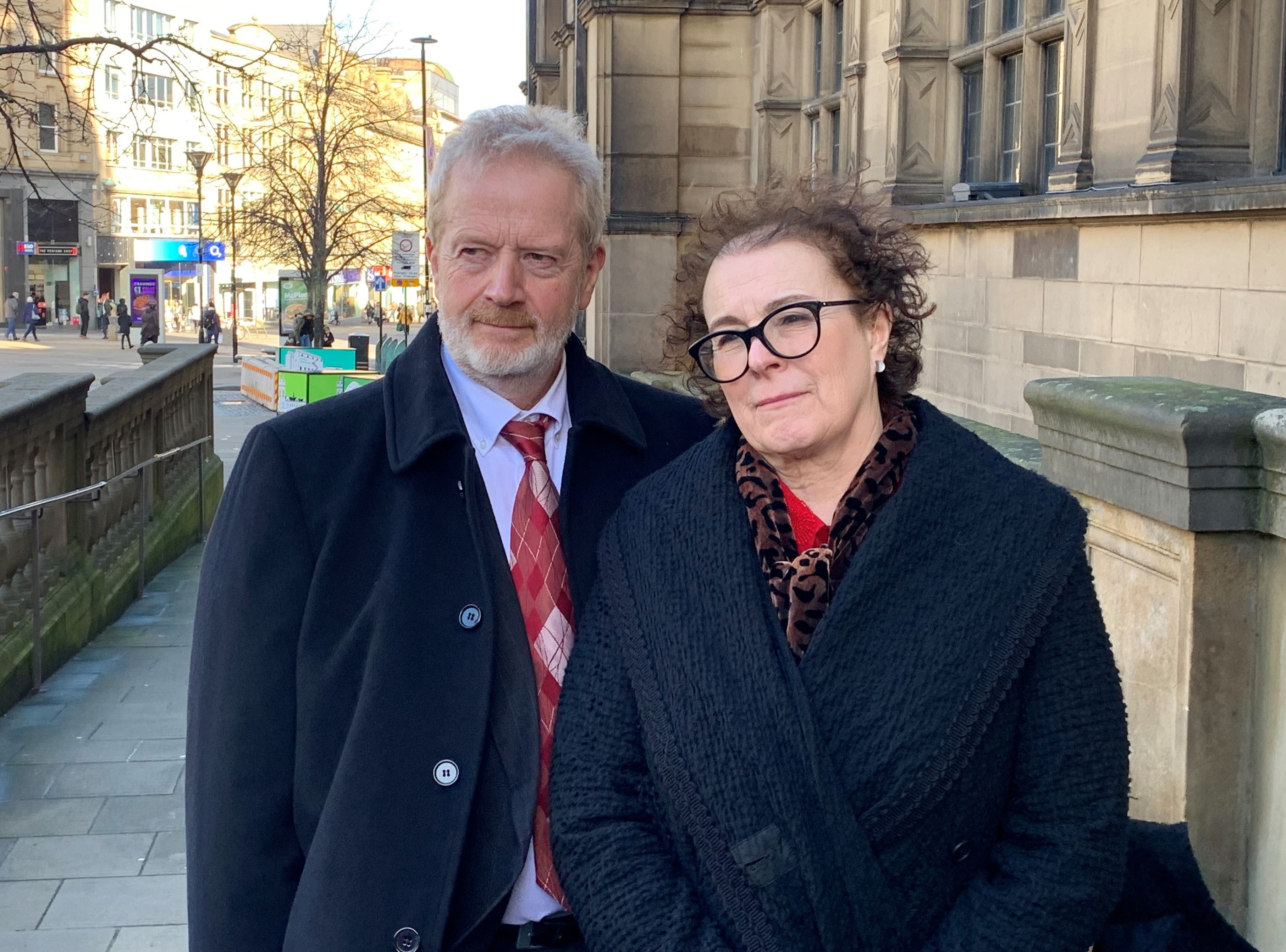Gambling addict teacher who killed himself was ‘abused by parasites’
Jack Ritchie’s parents attacked gambling companies and the Government following the conclusion of an inquest into their son’s death in Vietnam.

Your support helps us to tell the story
From reproductive rights to climate change to Big Tech, The Independent is on the ground when the story is developing. Whether it's investigating the financials of Elon Musk's pro-Trump PAC or producing our latest documentary, 'The A Word', which shines a light on the American women fighting for reproductive rights, we know how important it is to parse out the facts from the messaging.
At such a critical moment in US history, we need reporters on the ground. Your donation allows us to keep sending journalists to speak to both sides of the story.
The Independent is trusted by Americans across the entire political spectrum. And unlike many other quality news outlets, we choose not to lock Americans out of our reporting and analysis with paywalls. We believe quality journalism should be available to everyone, paid for by those who can afford it.
Your support makes all the difference.A teacher who killed himself after battling a gambling addiction “was abused by parasites who inflict life-threatening illness for profit”, his parents said after a coroner ruled that warnings and treatment had been “woefully inadequate”.
Liz and Charles Ritchie attacked gambling companies and the Government following the conclusion of an inquest into the death of their 24-year-old son, Jack Ritchie, in Vietnam in November 2017.
Sheffield Coroner David Urpeth said on Friday that Jack’s death is a “stark reminder of the terrible consequences that can flow from an addiction to gambling”.
Jack was abused by parasites who inflict life-threatening illness for profit and then blame the victims
In a narrative conclusion, Mr Urpeth said that information about the dangers of gambling was available at the time of Jack’s death, as was some treatment.
But he said: “Such warnings, information and treatment were woefully inadequate and failed to meet Jack’s needs.”
Mr Urpeth told the hearing: “Sadly, this addiction spiralled out of control and led to his suicide.”
The coroner concluded that “gambling contributed to Jack’s death”.
Speaking on the steps of Sheffield Town Hall, where the inquest was held, Mrs Ritchie said: “Jack was abused by parasites who inflict life-threatening illness for profit and then blame the victims, making them feel that everything is their fault and that they are better off dead.
“As his family we know that Jack was not the problem and in our grief we are also victims of predatory companies and a collusive Government.”
Her husband said: “The coroner heard clearly that gambling kills and he concluded that multiple state failings contributed to Jack’s death.
“Gambling was the root and trigger of Jack’s death. The coroner heard that ‘it took hold of a happy healthy 17-year-old child and killed him’.
“The Government tried to blame his death on other factors – but there was none.”
Mr Ritchie went on: “The Government accepted that our frontline NHS staff – our GPs, our nurses – had no training to be able to recognise, diagnose or treat gambling disorders.
“It must now be clear we need a statutory levy for the NHS to remove any gambling industry influence over information and treatment.”
Earlier, the coroner praised Mr and Mrs Ritchie for how they had “channelled their terrible loss into a tireless battle” for reform through the charity they set up, Gambling With Lives.
The couple believe the hearing was the first so-called Article 2 inquest in a case relating to suicide following gambling.
This means its scope included an examination of whether any arm of the state breached its duty to protect their son’s right to life.
Jack did not understand that being addicted to gambling was not his fault
The inquest heard that Jack was teaching English in Hanoi when he died after years of battling a gambling disorder which started when he began using fixed odds betting terminals at the age of 16 or 17.
The coroner said he will be writing to a number of government departments with warnings about how future deaths can be prevented, and particularly highlighted the need for more training for GPs about gambling disorders.
Mr Urpeth told the hearing the “evidence showed there were still significant gaps” in provision for gambling disorders and warnings about the dangers of gambling.
He said: “Jack did not understand that being addicted to gambling was not his fault.
“That lack of understanding led to feelings of shame and hopelessness which, in time, led to him feeling suicidal.”
Following the inquest, a Gambling Commission spokesman said: “Jack’s death was a tragedy and we have met and spoken with Jack’s parents on several occasions to understand and agree how we can learn from their experience to inform the way we work.
“These conversations, along with those of others who have experienced harm, strengthens our commitment to protect consumers and make Britain’s gambling market fairer and safer.”
A spokesman for UK lobby group the Betting and Gaming Council (BGC) said: “Any suicide is a terrible tragedy and we are not in any position, nor would it be right, for us to comment on any tragic individual case.
“As the mental health charity Mind and others acknowledge, the reasons behind any suicide are ‘complex and can have lots of different causes’.
The spokesman said the industry has introduced “significantly strengthened safeguards for customers” and recent figures show the rate of problem gambling has gone down.
“The BGC’s largest members committed to spend an additional £100 million for the treatment of problem gambling, including treatment for a minority of those who are suffering from serious addiction, between 2019 and 2023.
“We are committed to going even further and strongly support the Government’s Gambling Review as an opportunity to further drive change.”